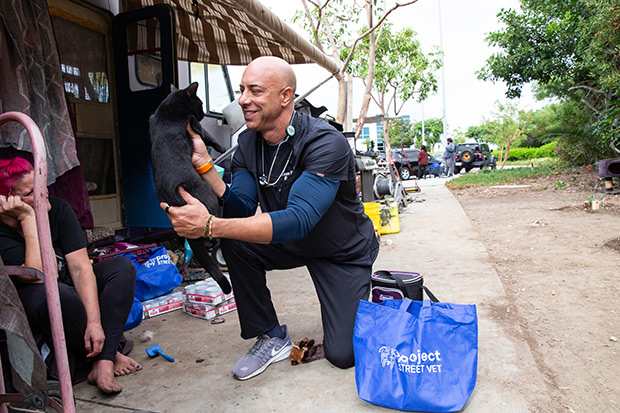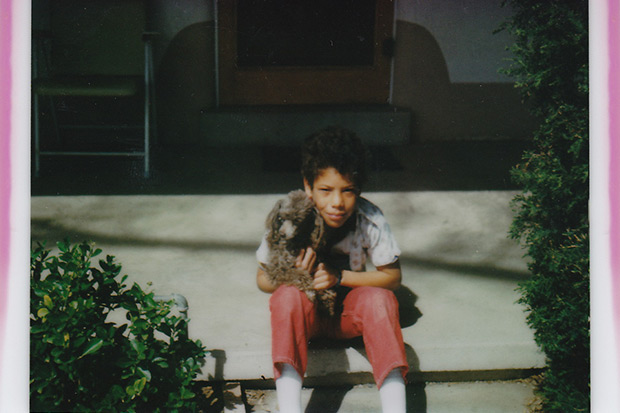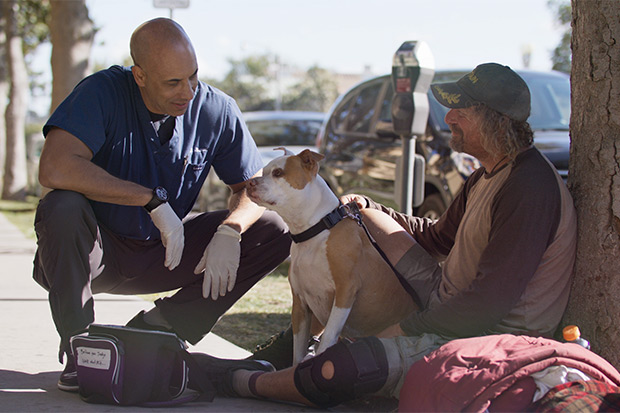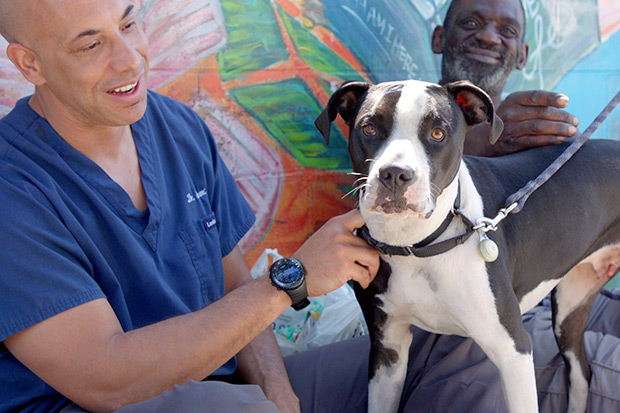Founder of Project Street Vet named CNN Hero of the Year
Veterinary professionals are well aware of the power of the human-animal bond. This mutually beneficial relationship can exist in a variety of contexts, including outside a typical home environment.
Estimates say 10%-25% of people experiencing homelessness have a pet. Dr. Kwane Stewart, founder of Project Street Vet, is one veterinarian who is passionate about offering veterinary services to unhoused people in San Diego, Los Angeles, and beyond.
Project Street Vet is a 501(c)(3) nonprofit that provides free veterinary care, treatment, and support to the pets of individuals experiencing homelessness or housing vulnerability.
The organization also assists with finding financial assistance for pet owners to fund treatment. It hosts free clinics where owners are provided essential supplies and minor care while establishing relationships that lead to follow-up visits.
“When we meet a pet in the streets, we commit to total care whether it is simple wellness or an amputation,” Dr. Stewart said. Project Street Vet funds the care themselves for more expensive treatments such as surgeries, diagnostics, and parvovirus treatment.
In recognition of his work, Dr. Stewart was one of 10 finalists for the 2023 CNN Hero of the Year award. The public voted for their most inspiring hero from the finalists, and Dr. Stewart claimed the top spot, which comes with a $100,000 prize and an additional $300,000 from the Elevate Prize Foundation.
He and the other top 10 2023 CNN Heroes all receive a $10,000 cash award and donation matching up to $50,000 from The Elevate Prize Foundation, which will provide organizational support to all of the honorees. AVMA News spoke with Dr. Stewart—a 1997 veterinary graduate of Colorado State University—about his experience starting out in veterinary medicine, why he founded Project Street Vet, and lessons he’s learned along the way.
The responses have been slightly edited for length and clarity.
Q. Was there a moment when you were a child that influenced your career path?
A. I saw “The Black Stallion” when I was 7 and it changed everything—the way I saw animals, the way I saw humans interacting with animals. I knew, in that moment, where I wanted to go.
Q. What kind of veterinarian did you want to be?
A. Small animal medicine was always my passion. Having dogs and cats around my whole life, and, more importantly, the confidence and security they gave me as a child, there was never a question.
Q. What was your veterinary school experience like?
A. I loved it. Maybe the best four-year stretch of my life. Making new friends, learning things I had craved to know my whole life, and the experience of heading towards my dream was immeasurable.
Q. Why did you start Project Street Vet?
A. We created the 501c3 in 2020 after I had quietly been doing work in the streets for about 10 years. It reached a point where I needed more resources and help to expand my vision.
Q. What does the human-animal bond look like in people without housing? Are there misconceptions about pet owners who are without homes?
A. There are many misconceptions, sadly. With few exceptions, they are remarkable pet parents, given their resources. Their bond and relationship with their pets are on a higher plane. They are around each other nearly every minute of every day and reliant on one another. We know our pets need us for survival, but when you observe a human requiring the same of their dog, you see an entirely different relationship.
Q. What are some of the common conditions you see in this populations’ pets?
A. I see many of the same ailments in the streets that I see in the clinic. In California, skin and ear ailments, often due to allergies, are common. I treat a lot of ear infections, pruritic skin conditions, and fleas. Like with any paying client, I provide total care to the pet, whether it’s simple preventative or wellness care or in-hospital procedures such as tumor removal. All costs are covered by the charity.
Q. Are there any memorable lessons from your work as “The Street Vet?”
A. I’ve collected and witnessed so many special moments in the years I've done this. What I've learned is ultimately, despite the way society sees these people, is that they are people who are not much different than you or me. Some have made bad decisions, had bad luck, fallen to bad habits—but who hasn’t? What a lot of them lack is a strong network of support, such as friends and family, when they do fall. I've learned that I am not in a position to judge, only to help.
Q. Since you began doing “Street Vet Work”, have you seen any change in the population you’ve served, or can you share any statistics on the impact your project has made?
A. So far, this year we’ve treated or cared for over 1,000 pets—a milestone for us. We are now in six cities and growing, with aspirations to move into most major cities over the next few years. I do often run into pets and people I served, and it is humbling and rewarding seeing the impact the service has had on both.
Q. Do you have advice for veterinarians who want to start or help with similar outreach programs?
A. Any veterinarian with interest to provide this service in their community can always reach out. We are fueled by generous volunteer veterinarians and veterinary technicians willing to give their time. You can always start by offering care to the next unhoused person you see. It might just change your life as it did mine.
Q. What’s next for Project Street Vet?
A. Growth and expansion! I'd love to be in the 12 to 15 largest cities over the next two years. We've also launched Dog Food Pantries, providing free, premium dog food to underserved communities—something I also hope to expand.
How to help
Project Street Vet has volunteer teams in California, Georgia, Florida, and Virgina, and is looking to recruit new volunteer veterinarians and veterinary staff who would be interested in running their own Pet Clinics and Street Vet Work supported by the Project Street Vet Team. More information can be found on the Project Street Vet website.
Donations can be made to Dr. Stewart’s Project Street Vet and all the Top 10 CNN Heroes’ nonprofit organizations on CNNHeroes.com. The Elevate Prize Foundation is matching donations made directly through CNNHeroes.com up to $50,000 per hero.




